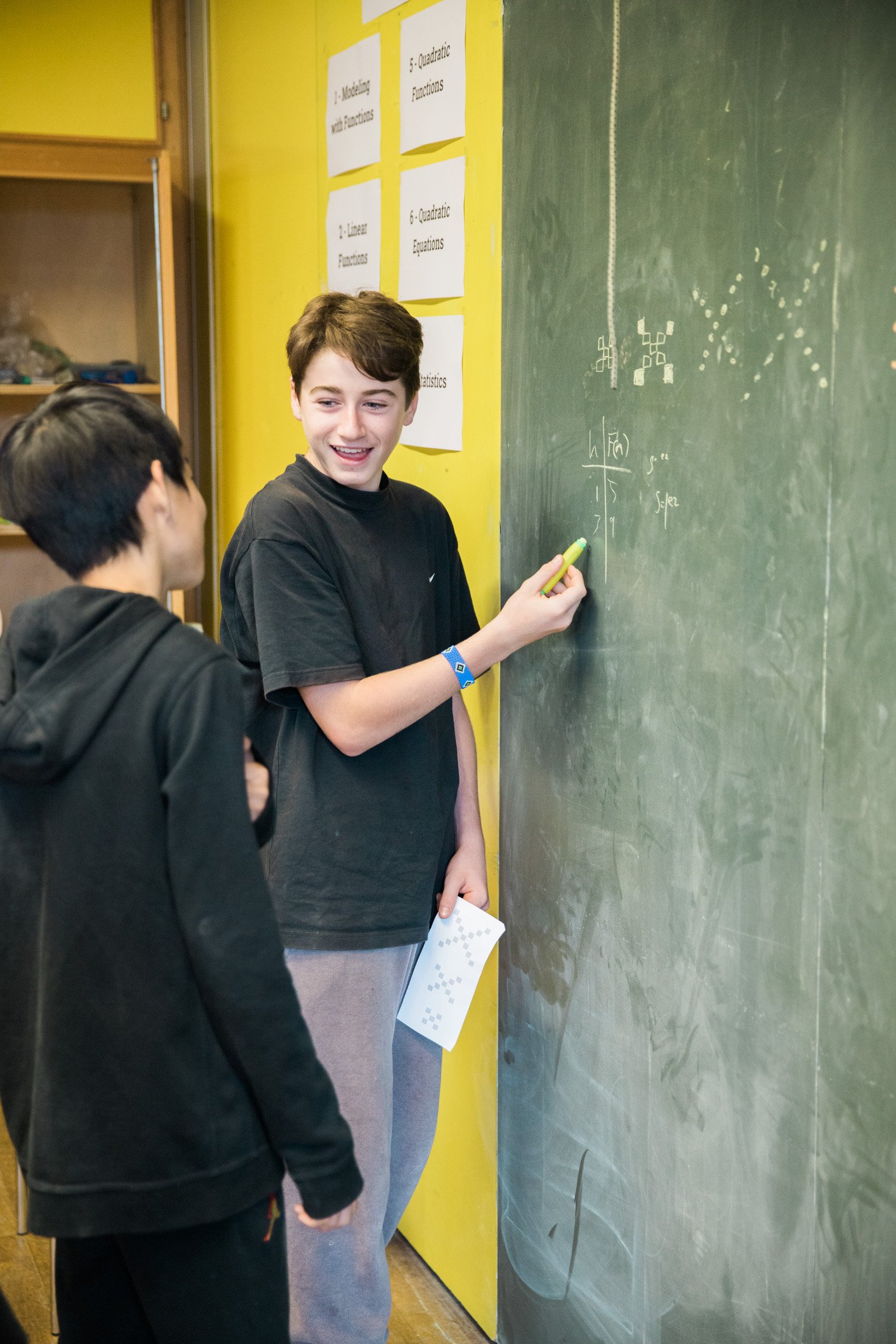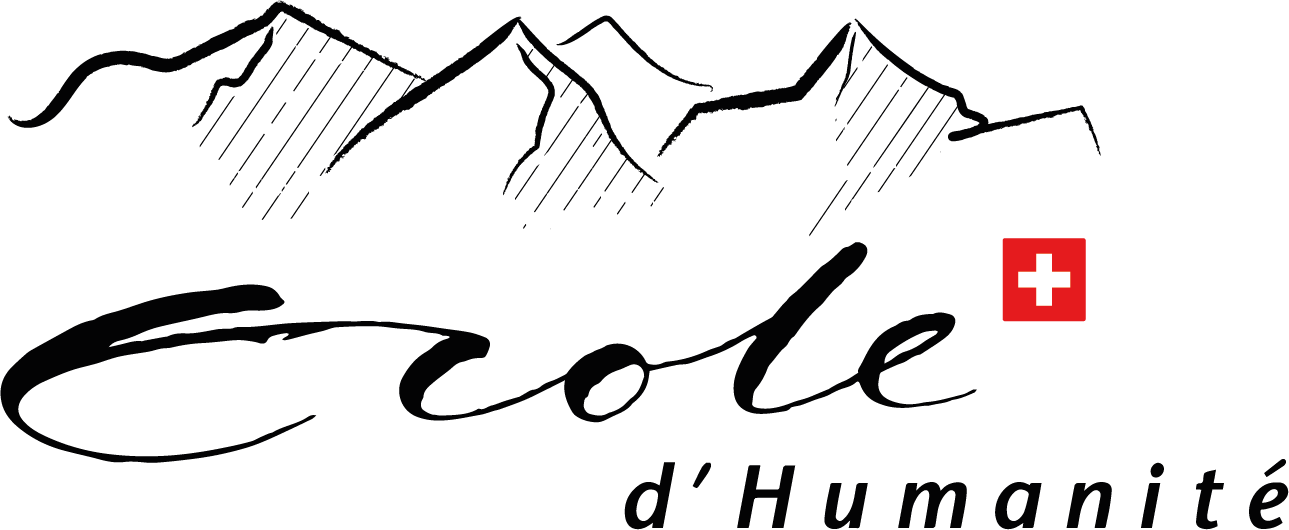ACADEMIC COURSES AT THE ECOLE
The Ecole d’Humanité offers a rich selection of academic courses structured around engaging themes. Here’s a taste of the courses we are offering in the US system this term.

US Academic Courses – Winter
Science: Fermentation
Explore microbial transformation by creating food. Design controlled experiments, analyze data, and maintain a structured scientific record.
Social Science: Souls & Stories
Religion, philosophy, and psychology on the "self". Discussion of Freud, Jung, and various traditions regarding the soul and the good life.
Creative Writing
Experiment with wide ranges of genres and techniques. Draft compelling stories and poems while receiving constructive feedback from peers.
Science: Cell Physiology
Investigate how single cells survive and interact to build life. Focus on hypothesis testing, experimentation, and careful reporting.
Writing Lab
Structured guidance for non-fiction writing and research papers. Designed to boost confidence and skills for 10th-12th grade students.
Social Science: Myths & Truths of US
Analyze American history and biases through primary sources. Texts include "Lies My Teacher Told Me" and Howard Zinn's history.
English: How Romantic
Analyze love in plays, novels, and films. Critique cultural attitudes toward desire, loyalty, and heartbreak through close reading.
GFL Theater (US)
Improve German speaking skills through acting. Invent characters, write dialogue, and perform a murder-mystery play.
Physical Chemistry
Investigate atomic structure, chemical properties, and reactions. Stoichiometry and experimentation. Prerequisite for AP Science courses.
US Academic Courses – Fall
AP® Physics C: Mechanics
Calculus-based physics for future scientists/engineers. Concepts: change, force interactions, fields, conservation. Prerequisite: Calculus.
AP® Environmental Science
Interdisciplinary course covering geology, biology, chemistry. Analyze natural/human-made environmental problems and risks. Prerequisite: Algebra 1.
AP® German Language & Culture
Advanced German. Topics: families, identities, aesthetics, science, global challenges. Focus on text comprehension and expression.
AP® Art
Create a portfolio assessed for AP score. Investigating materials, making art by practicing/revising, communicating ideas.
Social Science: Ideologies and Identity
What makes a concept an ideology? Discussion of capitalism, anarchism, feminism, nationalism. For students interested in political philosophy.
AP® Calculus
Introductory college-level calculus. Differential and integral calculus, limits, analysis of functions using definitions and theorems.
English: What Was I Made For?
How music lyrics and digital media construct identity. Analyze artists like Kendrick Lamar, Billie Eilish. Create song lyrics/music videos.
Science: Introductory Physics
Mechanics basics: forces, motion, energy. Experiments explaining why objects move. Introductory-level course for all students.
Science: Cell Physiology
How single cells survive and interact. Hypothesis testing and experimentation. Preparation for AP Environmental Science/Biology.
Math: Algebra 1
Foundational abstract math. Linear, exponential, and quadratic functions explored graphically and algebraically.
English: Reading Silent Film
Study of Charlie Chaplin. Autobiography reading, film analysis, touring his Swiss home, and creating silent film skits.
AP® Pre-Calculus
Preparation for Calculus. Analyze linear, polynomial, exponential, logarithmic, rational, and trigonometric functions.
Math: Algebra 2
Continues Algebra 1. Inverses, logarithms, polynomial functions, rational functions, trigonometric functions, modeling.
Science: Constructing Knowledge
"Life finds a way". How plants grow, weather prediction, evolution. Testing questions and collecting data. 8th/9th grade level.
AP® English Language
Rhetorical arguments, claims, evidence, reasoning. Preparation for exam with essays: synthesis, rhetorical analysis, argument.
Science: Developmental Biology
From zygote to gastrula. Principles of heredity, genetics, and stem cells. Experimentation and modeling.
AP® English Literature
Imaginative literature (Macbeth, Frankenstein, Brave New World). Analysis of style, structure, themes, and moral commentary.
Science: Forests
Structure and function of forests. Sustainability, human impact, and the future of Earth's forest resources.
English: Memoir
How memories shape perception. Texts: "Beautiful Country", "Born a Crime". Writing a Memoir Portfolio.
AP® European History
Events from 1450 to present. Analyzing sources, historical arguments. Themes: interaction, economic, cultural, and political development.
Pre-algebra
Foundation for Algebra I. Integers, rational numbers, powers, ratios, percents, linear equations, 2D/3D geometry, statistics.
English: Home Sweet Home
Stories of people and home. Literature study (Steinbeck, Jean George) and creative writing. Suitable for up to grade 9.
CO-CURRICULAR COURSES
Our co-curricular courses are offered in English and in German, and cover a wide array of topics.

